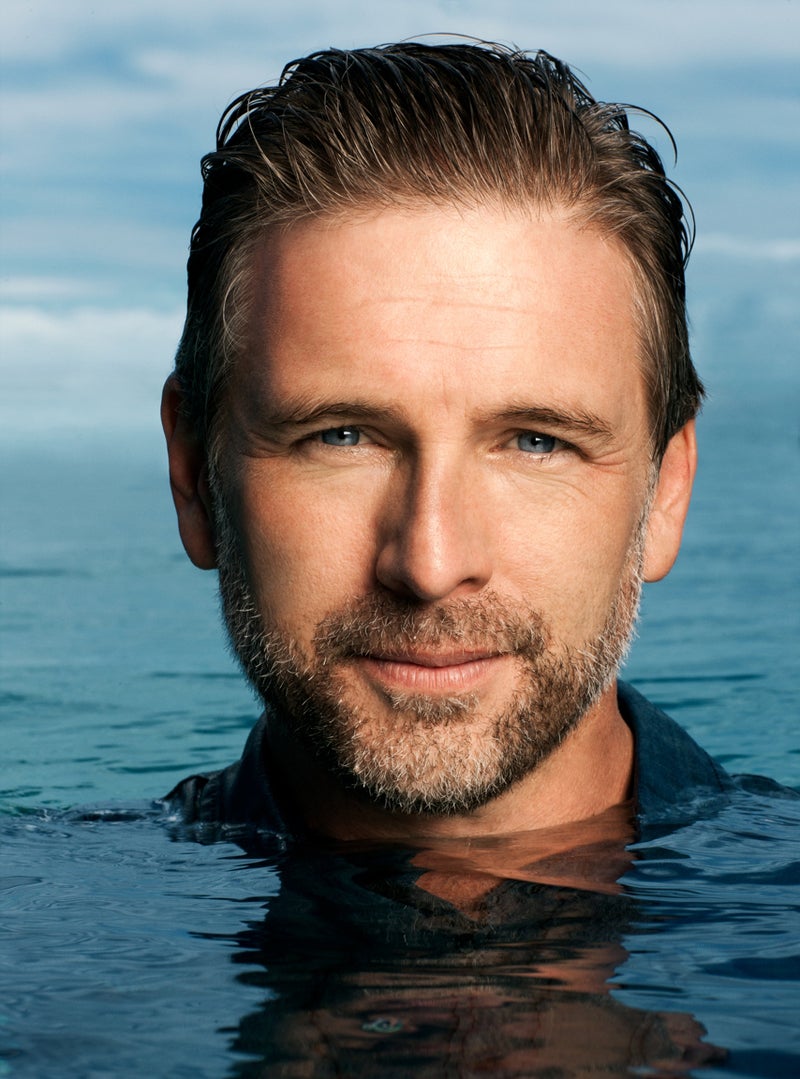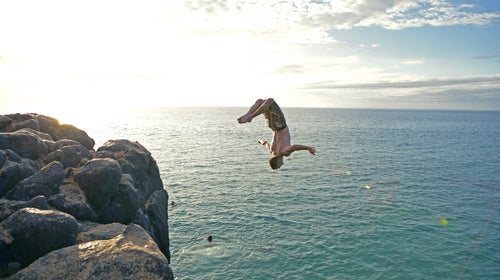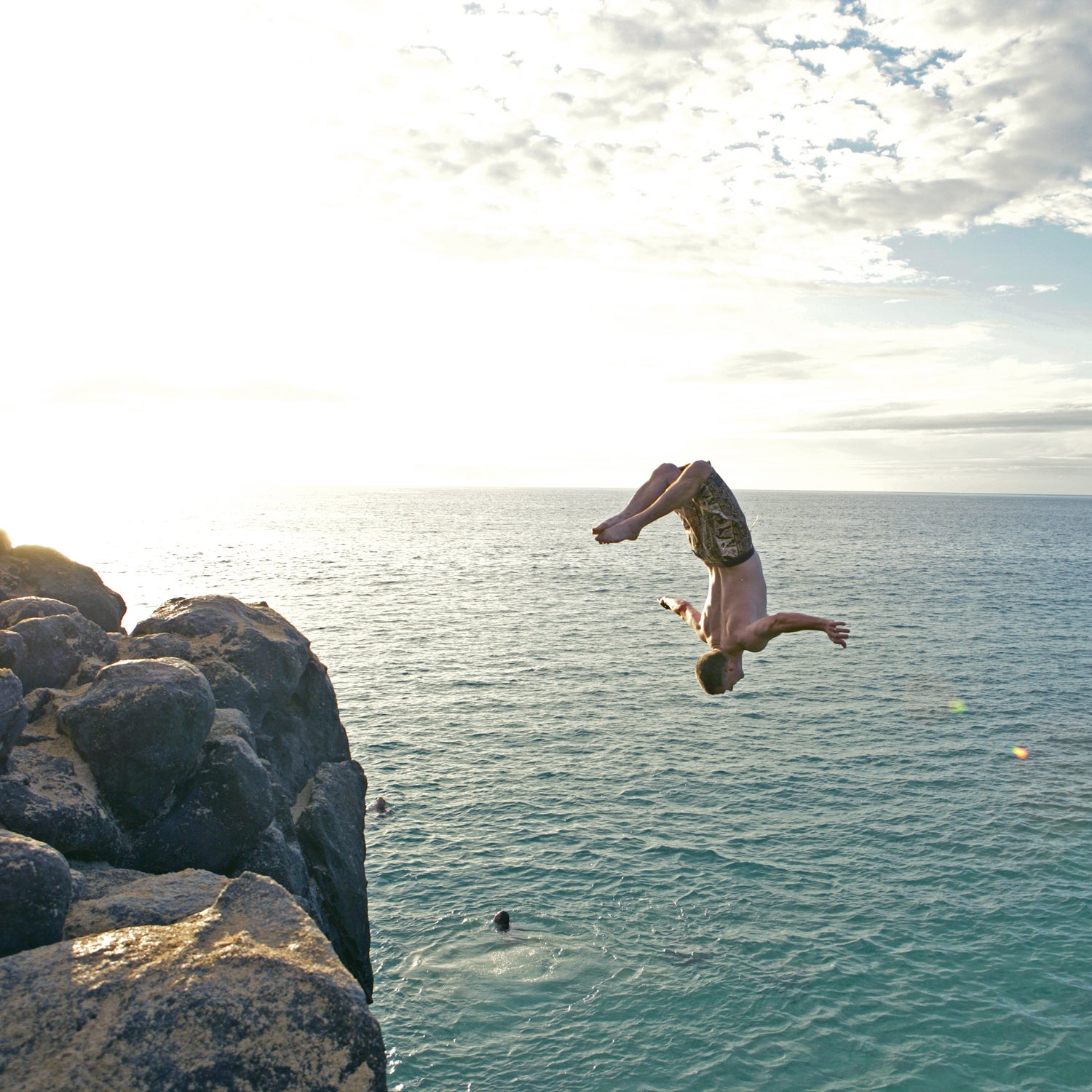This month, California biologist and former �����ԹϺ��� cover subject Wallace J. Nichols publishes , Blue Mind: The Surprising Science That Shows How Being Near, In, On, or Under Water Can Make You Happier, Healthier, More Connected, and Better at What You Do (Little, Brown, $27).
Billed as a “Big Idea” book that will change the way you think, Nichols’s debut effort combines everything from neuroscience to real estate pricing. (A full review is available in the August issue.) Abe Streep caught up with Nichols to discuss the book and how water can impact human happiness.
OUTSIDE: In the book you’re breaking down very complex science. You’re also combining anecdotal reporting throughout the world, real estate prices, and how-to journalism, suggesting ways in which people can improve their lives. What was the process of putting it together like?
NICHOLS: I read a book somewhere that said that writing a book is like creating a sculpture. This felt like creating a sculpture from water. As you mention, it’s writing a book about the brain, which is the most complex thing we know in the universe, and water, which produces life in the universe, and combining those two things—well, it’s a broad topic to say the least. I wrote the title as a placeholder and its subtitle as an outline. Then it was just about going out and finding the best researchers and some great protagonists. And making sure that they were not all surfers. Although, of course, there are several.
In the book you constantly refer to the ocean as a great healer for many societal ills. How?
The big conversation is the “red mind” vs. “blue mind” comparison. We live our indoor lives and our workspace lives and our family lives often in what I call a “red-mind” mode. We’re overstimulated, we’re captivated, we’re connected, we’re stressed. We’re behind. We’re trying to catch up. We’re out of money. We’re at deadlines. And we’re surrounded by screams.
Stress isn’t new, but this kind of chronic, constant stress is. Every medical doctor knows that stress is connected to disease. Diseases are exacerbated or caused by stress. So reducing that stress in some way is useful. There are a lot of conversations going around about different kinds of meditation. Sometimes the word meditation isn’t used—different relaxation techniques.

Athletes use them all the time to reach peak performance. And I’d just add that being by water meditates you. It puts you in that relaxed state. You don’t need to study or practice meditation. You just need to pay attention to the water around you. You can do it in the bathtub, the hot tub, the swimming pool, the creek, the lake, the river, the ocean.
When you unplug and let go, disconnect from a clock altogether, you do what neuroscientists call mind wandering. Rather than data crunching, you’re letting things come and connect. You’re letting innovation happen. We see over and over, people say, ‘This is where I get my best ideas—when I let my brain do that.’ And a lot of times there’s water involved.
You run an annual , in which you bring together conservationists, water advocates, and neuroscientists to discuss the ocean’s effect on the brain. How is it working? Do you meet skepticism among the scientific community?
Social neuroscience continues to expand. Neuromarketing is now happening. Executives at Google are having neuroscientists come in and teach them how to be innovative. The greatest source of happiness, of relaxation, [and] of mental stimulation is the outdoors. And we’re still behind. There are people looking into it, through brain-on-nature questions.
But we’re late to the game. There’s a conference I attend every year on neuroscience and music. It’s the eighth year of that conference. There’s Blue Mind, but there’s not an equivalent gathering of neuroscientists and people who are interested in the future of wild places. I still don’t get the buy-in from the ocean community. I think part of it is neuroscience is just a big, hairy difficult, intellectually challenging field. And some people just don’t like to say ‘I don’t understand.’ Instead of saying, ‘I don’t understand,’ they just kind of roll their eyes.
You’re organizing a conference, publishing a book. You have to talk to people like me. How do you create the time to meander in your own life?
I’m certainly not the guru on the rock on the top of the mountain saying, ‘Here’s how you do it, I’ve got this nailed.’ I’m living the red-mind, blue-mind roller coaster right along with the people who will read this book. I benefit greatly from being by the ocean and living next to a creek. It’s called Mill Creek. I hear it every morning, and I go to sleep to its sound every night. What I’ve learned is to pay attention to that. It’s a creek, it’s beautiful. You see the fish come up the creek after a rain. You know that in a few hours the creek is emptying into the Pacific Ocean. All those things you pay attention to.
Did one anecdote from your reporting surprise you particularly?
I can hang it all on one story. This guy named Bobby Lane, who served in the Gulf, had three different traumatic brain injury episodes. He came back to Texas with his world upside down. He was not speaking clearly, suffering from post-traumatic stress, being overmedicated, becoming addicted to those medications. He lost the desire to live. He tried to commit suicide through what he called “death by cop.” Which is essentially when you do something that gets the cop to come and kill you. Because as a warrior, he said he couldn’t do it himself.
So he tried that, and they shot him with rubber bullets, which really pissed him off, and really hurt, and really messed him up. He ended up going and doing something called , an experimental fringe program for people like him [in Santa Cruz]. He came to Santa Cruz and he had an experience: three tries and he was standing up on his board. Then he saw his life ahead. After having the experience he decided that he wanted to stay around and to live.
What’s next for Blue Mind?
The goal is to increase perceived value of healthy oceans and waterways. If realtors were to knowledgeably and consciously sell the cognitive and emotional benefits of water, they would become the front line communicators for healthy water.
If health practitioners are saying, ‘I’m prescribing a walk on the beach and a surf session and half the dose of those pills,’ they’re sharing the blue-mind message. That’s the idea. What the environmental movement typically does is say, ‘Here’s something you’re doing that you shouldn’t do. I’m going to tell you why and probably make you feel bad.’ That’s not always the best place to start a conversation. We’re [saying], ‘Here’s something about you that you should know that you don’t know.’


